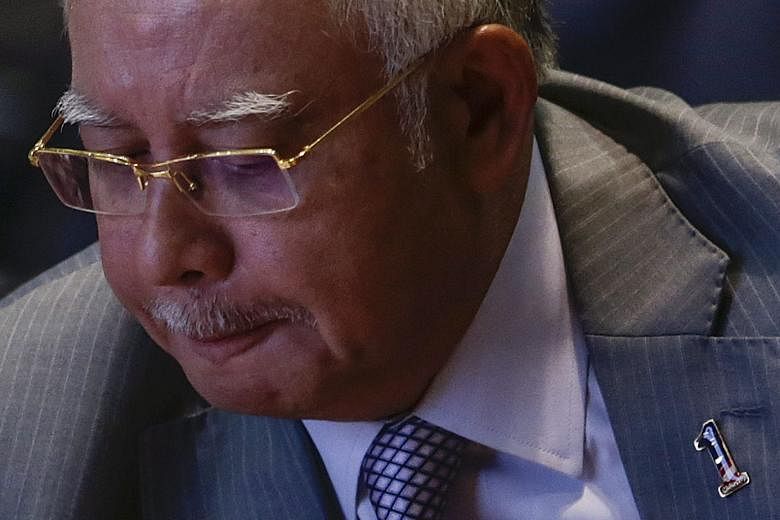Two oversight panels have advised the Malaysian Anti-Corruption Commission (MACC) to "engage with" the Attorney-General, saying he owed the public an explanation for his decision to clear the Prime Minister of criminal wrongdoing over millions of dollars found in the latter's personal bank accounts.
A-G Apandi Ali had on Tuesday also instructed that the case, which had sparked calls for Datuk Seri Najib Razak to step down, be closed.
But in a statement last night, MACC chief Abu Kassim Mohamed made clear the commission was not disputing or challenging the actions of the A-G, whose powers, he said, are absolute. He also said referring the A-G's decision to the oversight bodies was a standard operating procedure.
The recommendation by the Operations Review Panel (PPO) and a Special Panel after a meeting yesterday could drag out the US$700 million (S$998 million) scandal that embroiled Mr Najib last year.
Former police chief Musa Hassan, a Special Panel member, told reporters that "the A-G has discretion not to prosecute, but he owes an explanation as to why he made the decision".
Former Court of Appeal judge Mohd Noor Abdullah, who sits on the same panel, said Tan Sri Apandi needed "to show that his decision isn't arbitrary or (made) in bad faith". And though the Constitution gives the A-G sole power of prosecution, the judiciary could overturn his decision, he added.
The MACC on Wednesday said it would refer the A-G's decision to the two oversight panels, a move that called into question Mr Apandi's assertion on Tuesday that the anti-graft commission admitted there was no evidence of corruption on the part of Mr Najib receiving several deposits in his private banking accounts.
The PPO, which is one of several oversight panels monitoring the MACC, can review graft cases that have been dropped though the A-G is not obliged to take up its recommendations. However, legal experts, including Mr Apandi's predecessor, are of the opinion that the top public prosecutor decides on only court action and not investigations by enforcement bodies.
In July last year, the Wall Street Journal reported that nearly US$700 million deposited into Mr Najib's accounts had come from companies linked to troubled state investor 1Malaysia Development Berhad (1MDB).
Mr Apandi announced his decision not to prosecute the Premier on Tuesday, telling reporters that US$681 million was a personal donation from the Saudi royal family.
He added that based on MACC's investigations, the money, deposited just before the 2013 General Election, was neither an inducement nor a reward for Mr Najib to do anything in his capacity as PM.
As for another sum, which came from SRC International, a former 1MDB subsidiary that is now under the Finance Ministry, the A-G said "MACC itself admitted" there was "no evidence from the witnesses that could show that PM had committed any act of corrupt practice".
According to prior reports as well as charts that the A-G had held up during his press conference on Tuesday, it is estimated that Mr Najib received RM75 million (S$26 million) from SRC in the past two years.

